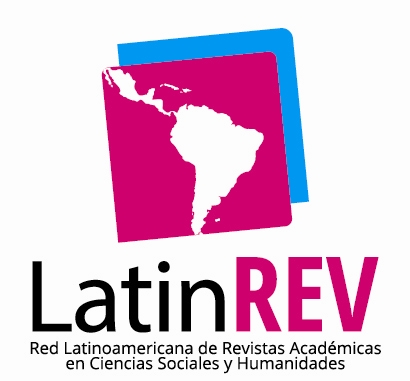Legitimacy to Demand Reparation for Damage Caused by Crimes Against Public Administration in the Colombian Legal System
DOI:
https://doi.org/10.70254/controlvisible.2023.3.32Keywords:
Crime against public administration , acts of corruption , collective legal good , legitimation , reparation , damageAbstract
Corruption is a phenomenon that seriously affects individuals and society in general, as it distorts the market, undermines the legitimacy of institutions, and negatively impacts human rights and societal development, among other adverse effects.
However, although its impact on the community is a certain fact, the extent of the damage suffered by it is not always clear, nor is the determination of who is entitled to demand its reparation before the competent administrative and/or judicial authorities.
Regarding the reparation of damages caused by acts of corruption, the Colombian legal system seems to exhibit a "monopolization" by the State and its institutions, which either overlooks or relegates the participation of individuals. However, in the field of criminal law, this appearance is contradicted by the recognition that the legislature has given to the victims of crime.
In this context, this article aims to contribute to the determination of who is entitled in the Colombian legal system to demand reparation for damages caused by acts of corruption associated with the commission of crimes against public administration.
To this end, this article determines (i) the nature of the legal good protected in crimes against public administration, (ii) the scope of the right to reparation in relation to such crimes, and (iii) the subjects entitled to intervene in the criminal process based on elements (i) and (ii) within the framework of the Colombian legal system.
Downloads
References
Banco Mundial. (2020). Datos básicos: La lucha contra la corrupción. Banco Mundial. WDC. Disponible en: https://www.bancomundial.org/es/news/factsheet/2020/02/19/anticorruption-fact-sheet
Cerezo Mir, J. (1975). Límites entre el Derecho Penal y el Derecho Administrativo. Anuario de Derecho Penal y Ciencias Penales, tomo 28, n. 2. Madrid: Boletín Oficial del Estado.
Consejo Nacional de Política Económica y Social. (2013). Documento Conpes No. 167. Bogotá.
Chanjan, R. (2017). El correcto funcionamiento de la administración pública: fundamento de incriminación de los delitos vinculados a la corrupción pública. Derecho Penal y Criminología, 38(104), 121-150.
Echevarría, M. (2019). Delitos de los funcionarios públicos. Análisis de los artículos del Código Penal Español que integran el Título XIX. Delitos contra la Administración Pública. Ma-drid: Dykinson S.L.
Fiscalía General de la Nación & Oficina de las Naciones Unidas contra la Droga y el Delito. (2018). Tipologías de Corrupción en Co-lombia. Fiscales Unidos por la Transparen-cia y la Integridad. Peculados. Disponible en: https://www.fiscalia.gov.co/colombia/wp-content/uploads/Tomo-II.pdf
Hefendehl, R. (2001). ¿Debe ocuparse el derecho penal de riesgos futuros? Bienes jurídicos colectivos y delitos de peligro abstracto. Uni-versidad de Murcia, 19(149).
López, E. (2008). Iniciación al Derecho. Delta Publicaciones. Primera Edición.Transparencia Internacional. (2022). The global coalition against corruption. Disponi-ble en: https://www.transparency.org/en/what-is-corruption
Jurisprudencia
Corte Constitucional. (1997). Sentencia C-658/97. M.P. Vladimiro Naranjo Mesa.
Corte Constitucional. (1998a). Sentencia C-563/98. M.P. Alejandro Martínez Caballero.
Corte Constitucional. (1998b). Sentencia SU-717/98. M.P. Carlos Gaviria Díaz.
Corte Constitucional. (2003). Sentencia C-205/03. M.P. Clara Inés Vargas Hernández.
Corte Constitucional. (2005). Sentencia T-589/05. M.P. Rodrigo Escobar Gil.
Corte Constitucional. (2007). Sentencia C-516/07. M.P. Jaime Córdoba Triviño.
Corte Constitucional. (2012a). Sentencia C-365/12. M.P. Jorge Ignacio Pretelt Chaljub.
Corte Constitucional. (2012b). Sentencia C-944/12. M.P. Jorge Ignacio Pretelt Chaljub.
Corte Constitucional. (2013). Sentencia C-434/13. M.P. Alberto Rojas Ríos.
Corte Constitucional. (2018). Sentencia C-031/18. M.P. Diana Fajardo Rivera.
Corte Suprema de Justicia. (1999). Sentencia 13922 de 29 de mayo de 1999, M.P. Jorge Aníbal Gómez Gallego.
Corte Suprema de Justicia. (2011). Auto Interlocutorio de 6 de julio de 2011.
Corte Suprema de Justicia. (2014). Sentencia SP16794-2014. M.P. Gustavo Enrique Malo Fernández.
Corte Suprema de Justicia. (2015). Sentencia AP1157-2015. M.P. Patricia Salazar Cuéllar.
Downloads
Published
License
Copyright (c) 2024 Control Visible

This work is licensed under a Creative Commons Attribution-NonCommercial 4.0 International License.
How to Cite












